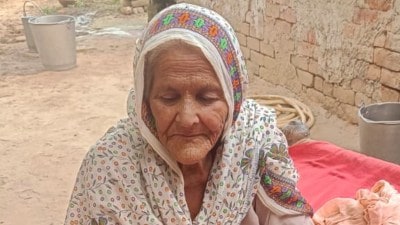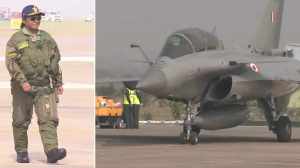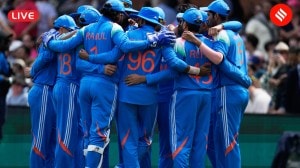Duma ratifies START II treaty
MOSCOW, APRIL 14: Making a rare gesture to Russia's President-elect Vladimir Putin, the State Duma, lower house of parliament, overwhelmin...

MOSCOW, APRIL 14: Making a rare gesture to Russia’s President-elect Vladimir Putin, the State Duma, lower house of parliament, overwhelmingly ratified the START II treaty today, ending years of confrontation between the Kremlin and parliament, under the former President Boris Yeltsin.
In the 450-member house, 288 deputies voted in favour, with 131 against and four abstention. The vote which was held in an open session, required a simple majority of 226. Only Communists and their left allies voted against the ratification.
Commenting after the vote, Putin said, he was pleased that the parliament had passed the treaty and now the arms control ball was in US court.
“For this reason, I not only welcome but fully support the decision,” he said, talking to mediapersons. “Our partners should make the next steps. The ball is in their court.”
The debate over the thorny issue of ratification, was held behind the closed doors. Before the deputies took up the ratification Bill, all the doors of the house, were locked and radio music was switched on in the lobby to prevent a battery of correspondents hearing the proceedings.
As Putin was attending the session, surcharged with frayed emotions, security officials took extraordinary measures to keep the proceeding of the house a top secret.
NTV’s video footage showed Putin arriving in the house, escorted by a posse of security men, among them, the officer who carries his nuclear button.
Addressing the house, Putin urged the lawmakers to pass the START II treaty.
Russian foreign minister Igor Ivanov and defence minister Igor Sergeyev also attended the session.
On the eve of the sensitive debate, they had urged the Duma to approve the long-postponed nuclear arms reduction treaty, which will reduce the US and Russian nuclear warheads from 6,000 to 3,500 by 2007.
Russia had “little room to manoeuvre” because of economic problems and should focus limited funds on new strategic arms, Sergeyev said, addressing the deputies.
The vote not only signalled that the Communists and their left allies were no longer in control of the new parliament, but will also enable Putin to show on his first trip to the West after the presidential election, starting in London on Sunday.
Ahead of his visit to London, Putin wanted to demonstrate a symbolic goodwill for the improvement of relations with the West, which have seriously been undermined by Russia’s ongoing Chechen campaign.
Now that the treaty is ratified, Ivanov is expected to pay a visit to Washington at the end of April to discuss further arms cuts issues.
Russian and US officials have already started talks on the START III treaty in Geneva, aimed at even further cutting their nuclear arsenals. Washington has proposed its readiness to reduce them to 15,000.
However, Russia has expressed apprehension that the next steps in nuclear arms control could be hampered by the US proposals for new national missile defence.
America wants to armed the 1972 ABM treaty so it can build a system to protect against possible attacks what it calls from “rogue nations” such as North Korea, Iran and Iraq.
Russia also plans modernizing its nuclear arsenals, with emphasis on a smaller arsenal of modern weapons, such as new Topol-M missile.





- 01
- 02
- 03
- 04
- 05


























